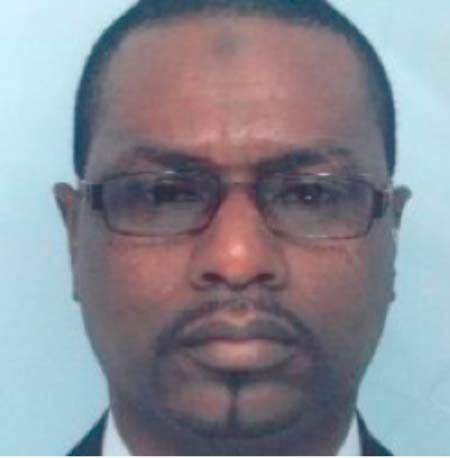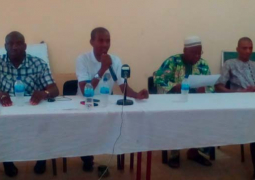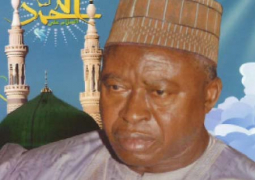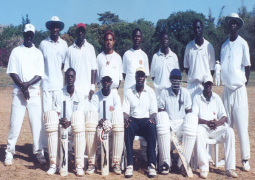
The
defence counsel, E. Sanneh, in the case involving Cherno Barry and twenty-nine
others, on 10 October 2016 told the Banjul Magistrates’ Court before Magistrate
Kebba Baldeh that the constitution had been violated by the state.
When
the case was called, Inspector Sarja Sanyang told the court he was representing
the IGP along with Sergeant 656 Jaiteh.
Lawyer
E. Sanneh, L.S. Camara, and Yasin Senghore represented the accused persons.
Defence
counsel Senghore informed the court she was holding brief for Lawyer Omar Njie.
Prosecutor
Sanyang told the court he was applying for an adjournment.
He
said the case file had been sent to the AG’s Chambers for fiat purpose, adding
that proceedings could not be made without the consent of the Attorney General.
He
then craved the indulgence of the court for an adjournment, adding they were
not in court to cause any delay.
He
further stated that they would proceed when they have the case file, adding
that their hands were tied.
Defence
counsel E. Sanneh said the case was adjourned on 21 September 2016 and, at the
last court sitting, they submitted to the court that there had been
unreasonable delay in the case.
He
adduced that the prosecution made an undertaking that they would proceed with
the matter, adding that as the prosecutor was asking for an adjournment, it was
inherent that the matter would be further delayed.
Counsel
Sanneh added that section 24 of the constitution gives his clients the right
for the matter to be heard at a reasonable time.
He
also stated that the amended charges were filed on 30 August 2016, adding that
the original charges were filed on 13 July 2016.
He
argued that it had been three months since his clients were brought to court,
adding that the failure to proceed amounted to a violation of his clients’
rights.
Counsel
Sanneh said that it was worth noting that his clients are civil servants and
have families.
He
further argued that the arraignment of his clients in these circumstances
amounted to nothing, but an “embarrassment”.
He
further stated that in view of the state’s conduct in the proceedings, they
were urging the court to strike out the case completely should the prosecution
fail to proceed with the matter at the next adjournment date.
He
added that the current state of affairs could not continue, and that litigation
must come to an end and the case before the court was not an exception.
Lawyer
Yasin Senghore also argued that the reason given by the prosecutor was that
they were waiting for the consent of the Attorney General, to proceed with the
case.
That
was the reason given at the last court sitting, she added, quoting section 90
of the CPC.
She
adduced further that prior to the filing of the case, the consent of the
Attorney General should have been obtained, and that the prosecution had
flouted section 90 of the CPC and section 24 of the constitution.
The
application for an adjournment had no proper basis in law, she continued,
adding that further adjournment of the case would be a breach of the accused
persons’ constitutional rights.
Counsel
Senghore said she was opposing the application for an adjournment, and
associated herself with the submission made by defence counsel E. Sanneh.
She
adduced that if the court should adjourn the matter, they would ask that if the
prosecution failed to proceed at the next adjournment date, the matter be
struck out.
In
response, prosecutor Sanyang said it was because of section 90 of the CPC that
the prosecution had sent the case file to the AG’s Chambers, adding that they
would not proceed without the consent of the Attorney General.
He
said they would write to the AG Chambers so they could proceed with the case.
Magistrate
Baldeh then said he had inherited the case, and had to study the file.
He
urged the prosecutor to ensure the consent of the Attorney General be obtained
to proceed with the case, on the next adjournment date.
The
case was subsequently adjourned until 18 October 2016.
Read Other Articles In Article (Archive)




